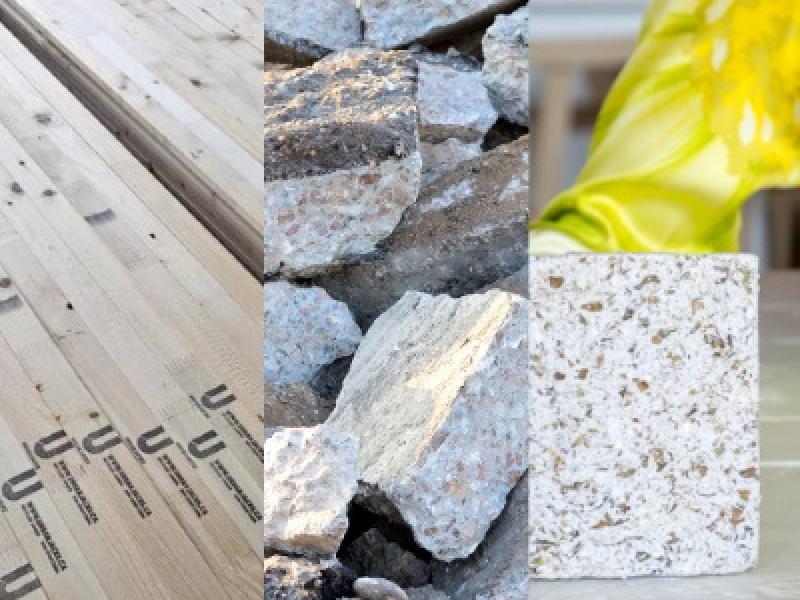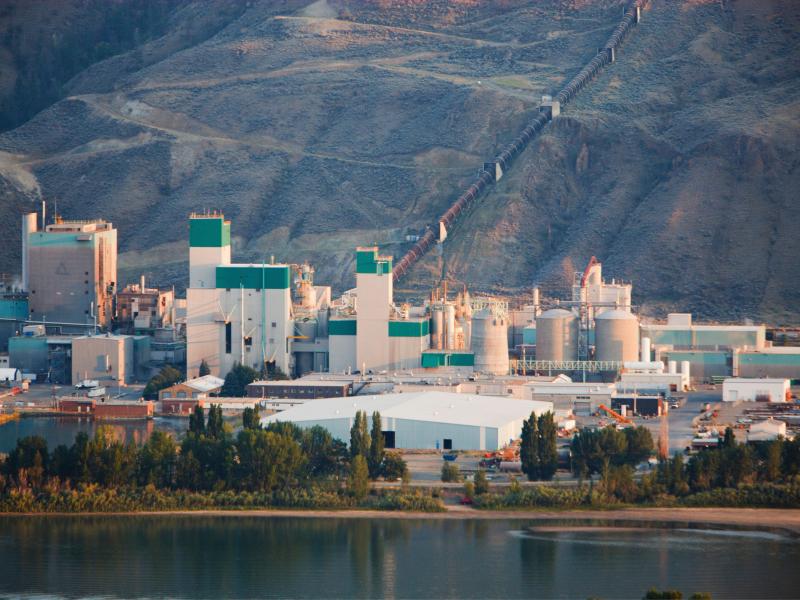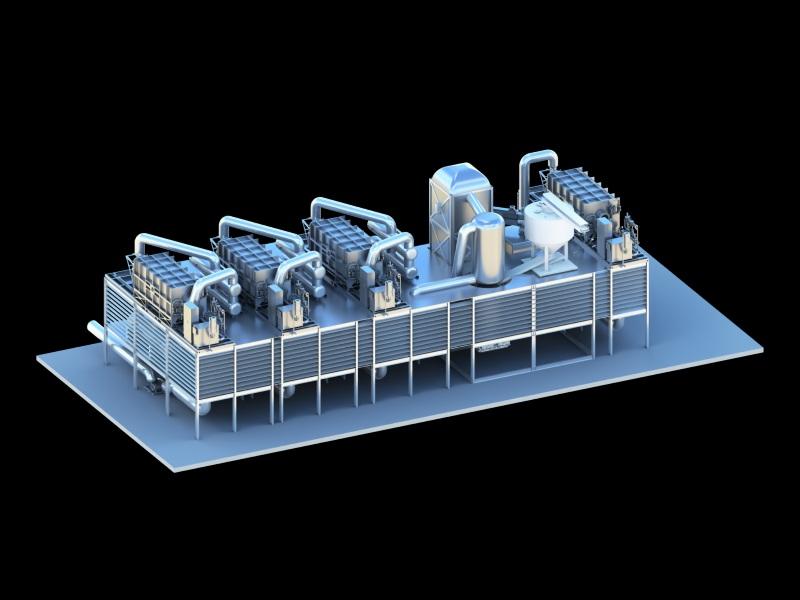Recent Articles
Ameresco develops 1st carbon-free school in London, Ont.
Ameresco develops 1st carbon-free school in Ontario
A carbon-free embedded energy system developed by Ameresco for John Paul II Catholic Secondary School in London, Ontario may pave the way for future projects at other schools. Fiera Capital and the Selkirk Advisory Group helped finance the project.
Nexii acquires Omicron as wholly-owned subsidiary
Nexii Building Solutions Inc. has acquired Omicron Canada Ltd. as a wholly-owned subsidiary. Nexii is a leading green construction company tackling the global environmental crisis through sustainable building products and technologies that enable efficient development of sustainable, disaster-resilient buildings.
1st residential gas heat pump pilot launched in B.C.
• Cision
ThermoLift Inc, an energy innovator, and FortisBC Energy Inc, an energy solutions provider supplying natural gas, electricity and renewable energy in British Columbia, will begin testing residential fuel-flexible heat pumps for houses, the first pilot in North America.
Montreal’s Polystyvert upcycles plastic waste
Montreal-based recycling company, Polystyvert, recently received financing to develop a plant capable of upcycling one of the most notorious plastic waste offenders, known as polystyrene. The development will improve environmental protection efforts by reducing greenhouse gas (GHG) emissions.
Startup helps P&G, Mercedes replace petrochemicals
• GreenBiz
One of the most closely watched startups focused on creating materials and other products out of captured carbon dioxide has raised $57 million. The first round of funding focused on value propositions, Capricorn Technology Impact Fund and Carbon Direct Capital Management.
GFL helping companies meet blue box responsibilities
GFL says it has formed the Resource Recovery Alliance to help product and packaging companies meet their responsibilities under Ontario’s blue box recycling program. The company says the alliance will become a producer responsibility organization under the province’s new legislation.
B.C. wildfire could result in $100M in claims
Insurers are not yet able to determine the total cost of damage from the wildfire that destroyed the village of Lytton, B.C., but a senior industry analyst estimates it could result in almost $100-million in insurance claims.
B.C. wildfires could increase home insurance
The B.C. wildfires that destroyed Lytton amid a record heatwave could have ripples effects on home insurance across the country. Homeowner and commercial policies typically include protection against wildfires; however, future availability and coverage costs could potentially be impacted.
Heatwaves impacting the future of electric grids
• GreenBiz
Heatwaves hurt the electrical grid. The combination of hot weather and increased energy running along wires goes beyond what they were built to endure. As a result, transmission lines swell and sag and, in some cases, can topple infrastructure.
Schneider helps reach 10,000 MW renewable energy
Schneider Electric, a leader in energy and sustainability, has advised its corporate clients on 10,000+ megawatts of renewable energy, equivalent to 300+ million metric tons of carbon emissions, or the amount of carbon annually stored by approximately 367 million acres of forest.
Schneider Electric partners with Footprint Project
Schneider Electric has joined Footprint Project, a disaster relief operation, as a strategic partner to support the organization’s microgrid efforts. The two pro-microgrid operations plan to help communities when calamities hit, causing electricity outages.
All Porsche parts to be made with renewable energy
Porsche has announced it is taking further steps to achieve its sustainability goals: The high-performance car maker is calling for its roughly 1,300 series suppliers to use exclusively renewable energy in the manufacture of Porsche components
Net-zero municipal building opening in N.S.
• CBC
In Tusket, Nova Scotia, dozens of solar panels power what is believed to be the first net-zero municipal building in Canada. The building belongs to the Municipality of the District of Argyle, which is aiming to reduce its carbon footprint.
How cities can help solve the biodiversity crisis
Cities have long been considered species deserts, devoid of wildlife beyond pigeons and squirrels. But with animals such as snowy owls, otters and bobcats now appearing in urban areas, scientists recognize that cities can play significant roles in fostering biodiversity.
Ottawa invests $25M in B.C. carbon capture startup
• Financial Post • Burnaby Now
Feds are investing $25-million in Svante Inc., a Burnaby, B.C. company that helps capture carbon from industrial cement, steel and other manufacturing plants. The company plans to use the money to build a manufacturing facility in Vancouver.
CIBC joins global banks to buy, sell carbon offsets
Canadian Imperial Bank of Commerce has joined three other global banks to launch a platform for buying and selling the carbon offsets companies use to compensate for emissions they are unable to eliminate in their own operations.
B.C. releases hydrogen strategy to spur investment
The B.C. government released a hydrogen strategy designed to spur investment in the clean alternative fuel within the province. The strategy outlines short- and long-term policy and procedural goals, including provisions for reviewing and setting regulations for hydrogen production.
Pallinghurst bets $1B on Que. as global battery hub
European private equity investor Pallinghurst Group is making a billion-dollar bet that Quebec will recover from its early blunders in battery materials and become a dependable pillar for supply in North America, as the global shift to electric transportation accelerates.
IDDI to develop strategy for steel decarbonization
• Environmental Leader • GreenBiz
The Industrial Deep Decarbonization Initiative (IDDI), an initiative of the Clean Energy Ministerial, has been launched to develop a global strategy for steel decarbonization by 2050. Industries such as steel and cement represent about 7 to 8 per cent of energy-related emissions globally.
Oil sands carbon cuts come with $75B bill, loose ends
It will cost about CAD$75 billion to eliminate greenhouse gases from oil sands operations by 2050, with a good deal of the costs borne by taxpayers and loose ends to be tied up, according to two of the industry’s top CEOs.
 Industry Events
Industry Events
-
ECO IMPACT 2026
Feb 19 2026
to Feb 20 2026
The Westin Calgary
-
BuildGreen Atlantic
Apr 27 2026
to Apr 28 2026
Halifax, NS
-
The Evergreen Conference
May 06 2026
to May 07 2026
Toronto, ON
-
Building Lasting Change
Jun 17 2026
to Jun 19 2026
Montréal, QC
-
Retrofit Canada Conference
Jun 24 2026
to Jun 25 2026
Halifax Convention Center











